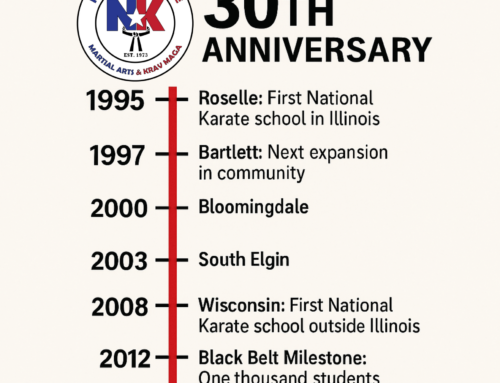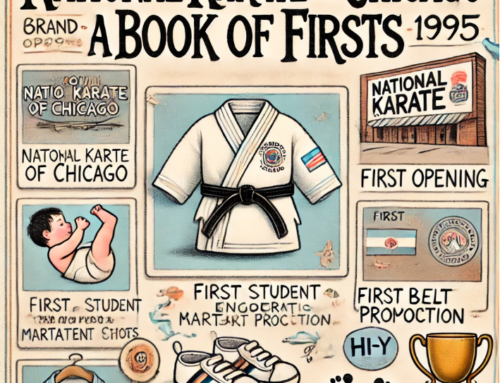In the world of martial arts and karate training, achieving success goes beyond physical prowess—it’s about cultivating the right mindset. The distinction between a Growth Mindset and a Fixed Mindset plays a crucial role in shaping a martial artist’s journey. These life skills developed in martial arts training then carry over to other areas of life helping the student become successful and confident in school, their job and in their relationships.
In this article, we will explore the benefits of a Growth Mindset versus a Fixed Mindset and how National Karate Schools can help individuals, both children and adults, develop this successful mindset. We’ll also discuss its relevance to martial arts training and the right attitude for participating in something outside a students comfort zone like entering karate tournaments.
A Growth Mindset and a Fixed Mindset are two contrasting belief systems or attitudes that individuals may adopt towards their abilities, challenges, and learning experiences. These mindsets, originally conceptualized by psychologist Carol Dweck, profoundly impact how people approach various aspects of life, including personal development, learning, and problem-solving. Here’s a clear definition of each:
- Growth Mindset: A Growth Mindset is a belief that one’s abilities, intelligence, and talents are not fixed traits but can be developed and improved over time through effort, learning, and perseverance. People with a Growth Mindset tend to embrace challenges, view failures as opportunities for growth, and maintain a strong sense of resilience in the face of setbacks. They are open to learning, seek feedback, and are more likely to achieve their long-term goals because they believe in the power of continuous improvement.
- Fixed Mindset: A Fixed Mindset, on the other hand, is the belief that one’s abilities and attributes are static, predetermined traits that cannot be significantly changed. They believe they are either good or bad at something without much control over changing their abilities or destiny. Individuals with a Fixed Mindset often avoid challenges to protect their self-image and may become discouraged by failure, which they see as a reflection of their inherent limitations. This mindset can lead to a fear of taking risks, a tendency to give up easily, and limited personal growth, as individuals with a Fixed Mindset believe they have set limits on what they can achieve.
Cultivating a Growth Mindset in kids is often associated with greater personal and professional success, as it fosters a more positive and adaptive approach to life’s challenges. Developing a Growth Mindset is an invaluable asset in anyone’s life and National Karate can help teach children and adults how to develop this successful mindset.
Understanding the Growth Mindset Advantage
1. Embracing Challenges in Martial Arts Training
Youth martial arts and adult martial arts alike are challenging pursuits that require dedication and perseverance. A Growth Mindset encourages students to view challenges as opportunities for growth. Instead of shying away from adversity, they see it as a chance to improve their skills and character. This attitude fosters resilience and determination, qualities essential for success in martial arts and all areas of life.
2. Persistence and Effort
In martial arts, as with other sports, progress isn’t always linear, and setbacks can happen. A Growth Mindset teaches students that success is a result of persistent effort. They understand that talent can be developed through hard work and commitment, motivating them to stay dedicated to their karate training.
3. Lifelong Learning
National Karate Schools not only teach martial arts techniques but also instill life skills in students. A Growth Mindset in kids encourages a thirst for knowledge and a commitment to continuous learning. Students with this mindset are open to feedback, eager to improve, and willing to explore new strategies and techniques.
4. Resilience in Karate Tournaments
Entering karate tournaments can be intimidating with the wrong mindset. A Growth Mindset equips participants with the mental strength to not fear defeat but rather see this as an opportunity for growth no matter if you win or lose. Rather than dwelling on wins or losses, they view the competition as valuable learning experiences that motivate them to work harder for future competitions. Entering any sports competition with the Fixed Mindset places undue stress on the competitor because they think their self-worth is based on the outcome of the competition. “If I win, I’m good. If I lose, I’m bad.” This extra stress is like a 200 pound weight on the competitors back which prevents them from preforming their best. On the other hand, competing with the Growth Mindset allows the competitor to be loose and have fun and learn from the competition no matter the outcome.
The Pitfalls of a Fixed Mindset
1. Fear of Failure
In contrast, a Fixed Mindset can hinder a student’s progress in youth martial arts and adult karate and in all areas of life. Those who believe their abilities are fixed may fear failure, leading to avoidance of challenging situations. This fear can stifle their growth and limit their potential. When a person avoids challenging situations, they miss out on opportunities for personal development and fail to meet their full potential.
2. Limited Effort
Fixed Mindset individuals may assume that success should come naturally, leading to a lack of effort when faced with difficulties. This mindset sabotages a person’s work ethic and prevents them from achieving all that they can be. In karate training, and other areas of life, this mindset can result in frustration and a quick loss of interest when progress seems slow and tempts the person to give up before goals are reached.
National Karate Schools and the Growth Mindset
1. Expert Instruction and Encouragement
National Karate Schools excel in nurturing a Growth Mindset in their students. Their instructors are not only skilled in martial arts but also in fostering a positive mindset. They provide expert guidance and encourage students to set achievable goals, reinforcing the belief that improvement is within reach with dedication.
2. Setting and Achieving Goals
Goal setting is a vital aspect of developing a Growth Mindset. National Karate Schools help students, whether children or adults, set specific, measurable, attainable, relevant, and time-bound (SMART) goals. By breaking down their martial arts journey into smaller milestones, students learn to celebrate their progress and stay motivated.
 3. Creating a Supportive Community
3. Creating a Supportive Community
The martial arts community at National Karate Schools is built on camaraderie and support. Students are encouraged to uplift one another, creating an environment where individuals can thrive. This sense of community fosters a Growth Mindset by emphasizing that everyone has the potential to grow and succeed.
Conclusion
In order for a person to achieve their full potential, a Growth Mindset is a priceless asset, which is why the National Karate Schools work so hard to develop this successful mindset in its adult and youth martial arts students. This successful mindset empowers students, both young and old, to tackle challenges head-on, persist in the face of adversity, and continually refine their skills. Whether it’s about earning a Black Belt, participating in karate tournaments, or simply enhancing personal growth, seeing a growth mindset in kids paves the way for success in martial arts and life. National Karate Schools not only teach martial arts techniques but also provide a nurturing environment for developing this invaluable mindset. So, if you’re considering youth martial arts as children’s activities, or adult martial arts to achieve personal development, remember that a Growth Mindset is the key to unlocking your full potential and achieving success. Embrace the journey and let National Karate Schools guide you toward a path of growth and achievement with karate training.
by Cristian Nelson

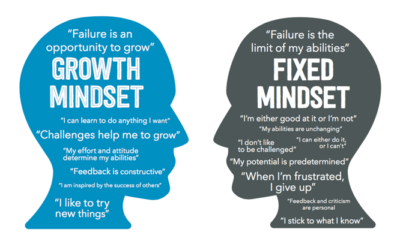
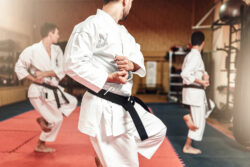
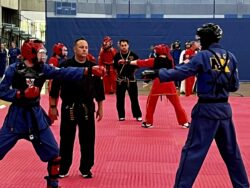

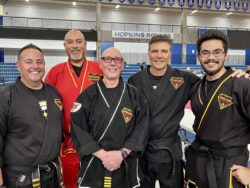
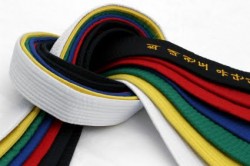
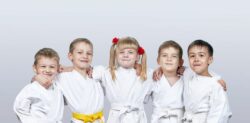 3. Creating a Supportive Community
3. Creating a Supportive Community